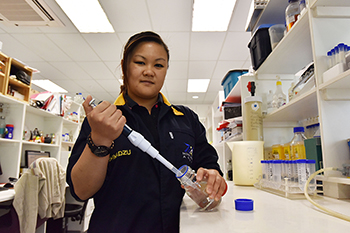Latest News Archive
Please select Category, Year, and then Month to display items
![]()
The closing date for the submission of nominations for five members of the Convocation to the Excom of the Convocation was 18 May 2020 at 16:30. A total of six nominations were received and scrutinised, after which two nominations were declared invalid due to substantial non-conformance with the requirements laid down. The remaining four candidates are thus elected to the Excom and will serve for a period not exceeding five years.
We wish to congratulate the following four officials (in alphabetical order) with their election to the Excom of the Convocation:
1. Dr Pieter Bettings
2. Ms Ntombi Nhlapo
3. Mr Ntakuseni Razwiedani
4. Ms Nokuthula Sithole
A meeting of the Excom of the Convocation will be scheduled to discuss the one remaining vacancy in the Excom.
We wish to express our sincere gratitude to all those who participated in this process as well for their interest in, and commitment to the University and its affairs.
Received from: The Registrar and the President of the Convocation
The impact of personal care products on water resources in the Free State
2015-12-14

Jou-an Chen
Photo: Charl Devenish
|
Water is of the utmost importance in personal hygiene. Most people can hardly have a day go by without taking a shower in the morning and at night. However, it is this very habit that is increasingly polluting the water resources in South Africa.
Contaminants found in pharmaceutical and personal care products have been accumulating in water masses in recent years. These contaminants especially refer to hormones in medication, as well as colouring agents and fragrances used in soap, shampoo and body lotions.
“Little information and data are available on the prevalence of these contaminants, and on how high the level of pollution really is,” says Jou-an Chen, researcher in the Department of Microbial, Biochemical and Food Biotechnology at the UFS.
Her research particularly focuses on the prevalence and impact of those contaminants.
“Because these substances have not been properly investigated, we are not sure how widely it occurs and whether it is harmful to the environment. It was precisely the lack of information that has inspired me to investigate further.”
“If we could identify the contaminants and what it is doing to the environment, it could make a valuable contribution to directives on water quality standards.”